Graduate Mentor Fellows Program
For the fourth round of INFEWS-ER cohort challenges, we are offering a fellowship program where past participants may serve as mentors to new cohorts of students. These Graduate Mentor Fellows are recruited from among the alumni of past INFEWS-ER cohort challenges and are invited to work with cohort advisors to begin planning future cohort challenges starting in January 2022 and continuing until May 2022. Typically, graduate mentors will be alums of one of the previous cohort challenges offered by the INFEWS-ER.
Mentor |
Participant in ____ cohort
Mentoring ____ cohort |
|
Margaret Carolan, University of IowaMaggie Carolan is a Ph.D. candidate in environmental engineering at the University of Iowa. Her current research focuses on developing treatment materials for removing uranium from drinking water and monitoring radium in private drinking water wells in Iowa. She is particularly interested in understanding how rural private well users make choices about drinking water and interact with household water treatment devices. She participated in INFEWS-ER during the 2018-2019 academic year as a part of the Dairy Carbon Cohort Challenge, where her team designed a module for modeling carbon cycling on a virtual dairy farm. For 2020-2021, she is mentoring the Livestock and Local Communities Cohort Challenge. Maggie is an NSF Graduate Research Fellow. She earned a B.S. in Water Resources, Policy, and Management from Virginia Tech in 2018, where she became passionate about safe drinking water while working as a research assistant on the Flint Water Study team. |
Dairy Carbon (2018-19)
Livestock and Local Communities (2020-21) |
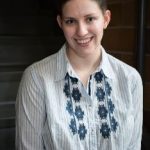 |
Freda Dorbu, North Carolina A&T State UniversityA PhD student in Computational Data Science and Engineering at North Carolina A&T State University. Research focus is on the application of remote sensing (UAVs) for monitoring and evaluation of farm, image processing of farm data using Agisoft Photoscan and GIS, for furtherance of precision agriculture. A participant in the 2019-2020 INFEWS-ER (LLC) Cohort program and currently a student mentor. |
Livestock and Local Communities (2019-20)
Livestock and Local Communities (2020-21) |
 |
Jackie Welles, North Carolina State UniversityMaster’s student in Biological and Agricultural Engineering at NC State currently studying swine lagoon material rheological characterization, improved methods for assessing flood vulnerability of swine CAFOs using GIS, and hog lagoon closure/wetland design. Jackie participated in the 2019-2020 Livestock and Local Communities cohort and is excited to be serving as a student mentor for the 2020-2021 LLC cohort. |
Livestock and Local Communities (2019-20)
Livestock and Local Communities (2020-21) |
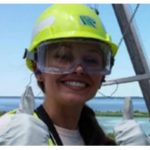 |
Joseph Burke, Texas A&M UniversityJoseph A. Burke (he/him) is a third-year Ph.D. student in Soil Science at Texas A&M University and a Strategic Initiative Fellow in Water and Soil Health with Texas A&M AgriLife Research. Burke’s research focuses on soil health management and nutrient cycling of semi-arid cropping systems on the Texas High Plains. Burke holds a B.S. in Interdisciplinary Agriculture and M.S. in Plant and Soil Science, both from Texas Tech University. |
Dairy Carbon (2018-19)
Food Waste (2020-21) |
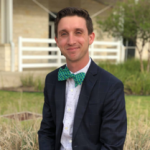 |
Ayorinde Ogunyiola, South Dakota State UniversityI am a Ph.D. candidate in applied sociology. My current research interest focuses on climate-smart agriculture (CSA) and development, where he analyzes issues of justice and power. The disaster relief and resilience cohort challenge provides the space to participate in an interdisciplinary setting and engage in community-based research. |
Disaster Relief and Resilience (2019-20)
Disaster Relief and Resilience (2020-21) |
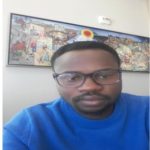 |
Sam Reed, University of MinnesotaI am a PhD candidate at the University of Minnesota studying how multiple disturbances, such as fire and invasive species, influence the development and health of a forest. My passion lies in understanding how climate-driven disturbances influence community resilience and adaptive capacity. The DRR cohort challenge allows me to develop my understanding of societal resilience rather than only thinking about forest ecosystems. |
Disaster Relief and Resilience (2019-20)
Disaster Relief and Resilience (2020-21) |
 |
Michael Stablein, University of IllinoisI am a PhD Candidate in the Agricultural and Biological Engineering Department at the University of Illinois Urbana Champaign. My primary graduate focus has been cultivation of algae biomass using nutrients from hydrothermal liquefaction wastewater. My interest in disaster management and resilience has spawned from numerous experiences working in service immersion projects, international consulting, and research working across cultures. The disaster relief and resilience program in Puerto Rico connects some of these professional aspirations and my personal connections to Latin America. Working in transdisciplinary contexts has been eyewidening and inspired me to always connect my technical work with biological water remediation with community-based projects that can help people directly. |
Disaster Relief and Resilience (2019-20)
Disaster Relief and Resilience (2020-21) |
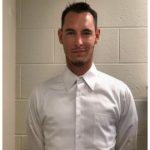 |
Jessica Talbot, Iowa State UniversityI am in my last semester as a PhD student in Civil Engineering at Iowa State University, where I have been for 3.5 years. My research centers around informal housing reconstruction in Puerto Rico after Hurricanes Irma and Maria, through the lenses of social capital, socioeconomic vulnerability, and issues of place and power mismatch. I just successfully defended my dissertation and started a new job with FEMA in their Sacramento, CA office. |
Disaster Relief and Resilience (2019-20)
Disaster Relief and Resilience (2020-21) |
|
Riveraine Walters, University of Idaho |
Disaster Relief and Resilience (2019-20)
Disaster Relief and Resilience (2020-21) |
Responsibilities:
- Provide ‘institutional knowledge’ to the cohort challenge process so that new cohorts are advancing or building on past projects – and not starting from scratch
- Mentor the cohort through the team-building process and through the decision-making process (selecting a product to work on)
- Participate in planning meetings with other facilitators to set up the framework for the cohort challenge
- Build on existing stakeholder relationships help the cohort establish a two-way dialogue to learn about needs and possibilities
- Participate in the cohort meetings and the face-to-face symposium *
*If the COVID-19 pandemic precludes a face-to-face symposium, a virtual event will be planned
What do you gain?
- Leadership skills and professional development in team science
- Travel support to attend the face-to-face symposium*
- The opportunity to network with future colleagues and build stakeholder relationships
- A stipend valued at $5000
- Mentoring Opportunities
The cohort challenge being planned for 2022 is:
Development of a Virtual Resource Center for Food, Energy, and Water Nexus Grand Challenges
- Setting the standard for use of wicked problems in instructional environments
- Identifying gaps in effective delivery of learning in virtual environments
- Optimizing interactions with advisors of cohort challenges with their participants and between the participants
- Providing a template for the success of others in transdisciplinary environments
Interdisciplinary Outcomes
- Students will implement concepts specific to Systems Thinking;
- Students will communicate effectively across disciplines;
- Students will apply principles of “High Performing Teams”;
- Students will recognize the importance of engaging stakeholders and consider their perspectives in the proposed community odor model.

